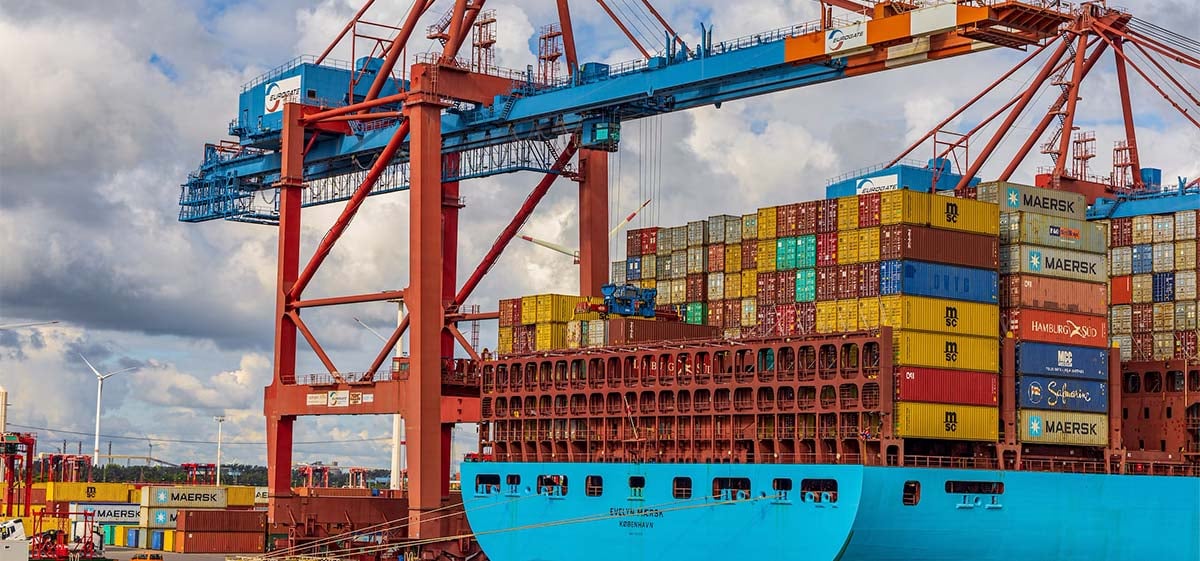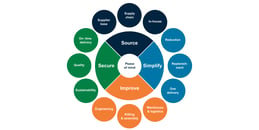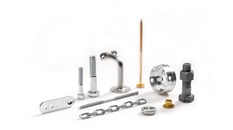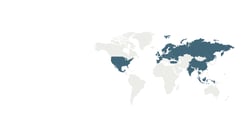- Insights
- The Solutionists Hub
- How do EU sanctions against Russia affect your C-parts operation?
How do EU sanctions against Russia affect your C-parts operation?

In recent years, dealing with the effects of sanctions has become part of daily life for many manufacturers. Trade or economic sanctions work by restricting or prohibiting trade with a targeted country, for reasons including national security concerns, human rights violations, terrorism, or violations of international law. In today's conflict-filled world, it's important companies like yours understand which sanctions affect you and how to manage the challenges they pose to your business.
Today, many countries are targeted with various kinds of sanctions. But it's the relatively new trade sanctions against Russia that have had the biggest impact on European manufacturers. From 30 September 2023, EU restrictions came into force that banned the imports of iron and steel goods that contain iron and steel originating in Russia.
The list of goods affected by these sanctions is long — it covers many articles listed in chapter 72 of the EU's customs tariff nomenclature list and all articles in chapter 73, adding up to hundreds of different categories of iron and steel raw materials and products. Importers must provide certain documents to the authorities that prove imported goods on this list don't contain banned Russian materials.
As a manufacturer, there's a risk that your C-parts may be among this list of restricted goods — so assessing the impact of the sanctions on your business and planning how to deal with them is essential to keep your operation running smoothly. Asking yourself these questions is a good place to start.
Are my products within the scope of trade sanctions?
Depending on your business, not all of your C-parts will fall under these sanctions. However, steel items like bolts, nuts, screws, washers and other kinds of fasteners (as well as a long list of additional steel components) are affected. Even if these items are manufactured in a non-sanctioned country, they still fall under the restrictions if they are made of banned Russian iron or steel.
You can find more information about the kind of products affected by the EU's sanctions here.
What documentation is needed to comply with the sanctions?
A Mill Test Certificate (MTC) is regarded as sufficient evidence to prove that the iron and steel materials in your imported goods do not originate in Russia. However, national customs authorities have the power to request additional evidence if they feel they need it.
Have we adopted procedures to comply with trade sanctions?
The most important step in complying with the sanctions is ensuring all required documentation is collected for imported goods. Make sure suppliers have the ability to provide you with the evidence you need to import your goods to the EU.
What are the risks of not complying?
Without proof that your imported goods aren't restricted, it's likely they will get stuck in customs, creating chaos in your supply chain and slowing down your production. Other risks include damage to your company's brand and reputation, and even fines, asset freezes and prison sentences.
What steps is Bufab taking?
The scope of these sanctions may change in future, so Bufab is monitoring the regulatory environment and adopting the required measures to comply with the sanctions.
We're also performing due diligence in the supply chain and collecting the necessary records and documentation for complying with the trade sanctions.
On top of this, we're continually working with supply chain partners to increase transparency and traceability for all types of goods. The end result is peace of mind for our customers, who can feel confident they are fully complying with current sanctions when importing essential components.
If your company uses goods affected by these sanctions and you're unsure how to ensure full compliance, get in touch — we can recommend the next steps you should take towards a reliable, problem-free C-parts supply chain.
And if you're looking for further measures you can take to increase the resilience and efficiency of your C-parts supply chain, get more knowledge in our guide to C-parts supply chain management.
Get new knowledge every week!
Related
-
By Jaroslaw BazeliSupply Chain Strategy Definitions You Should Know
-
By Slawomir BieszkSupply Chain Management Risks, and How to Handle Them
-
By Nick MilesDefining the Objectives of C-Parts Supply Chain Management
-
By Rob KoningsHow Does the C-Parts Supply Chain Management Process Work in Practice?
-
By Jacob BergströmSupply Chain Challenges and How to Overcome Them
-
By Sergio BrambilaSustainable Supply Chain: How to Reduce Your Carbon Footprint
-
By Jacob BergströmSupplier vs. Supply Chain Partner: What to Choose?









